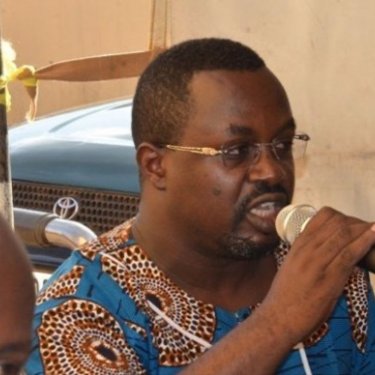RSF seeks independent enquiry into Rwandan journalist’s suspicious death

Reporters Without Borders (RSF) calls for an independent investigation into the death of a Rwandan journalist who was critical of the government and who felt his life was in danger. The circumstances of his death last week, supposedly in a motorcycle accident, are regarded as suspicious by his family and colleagues.
The editor of The Chronicles, an online newspaper, John Williams Ntwali was well known for investigative reporting that was critical of the Rwandan authorities and their harassment of dissidents. The police say he was killed in the early hours of 18 January when the motorcycle taxi he was riding near the capital, Kigali, was hit by car, whose driver was arrested.
But, in the days preceding his death, Ntwali believed that his life was in danger, persons close to him told RSF. “I am being followed everywhere I go,” he told them.
Ntwali survived a similar suspicious accident in 2012, several of his colleagues told RSF. They point out that he had been repeatedly harassed in connection with his work including his coverage of human rights violations, arbitrary arrests of government opponents, and murders of government critics. The harassment of Ntwali had ranged from arrests on trumped-up charges to cyber-attacks on the news site he had created, Ireme News.
In a country where surveillance, spying, arbitrary arrests and enforced disappearances form part of the constant harassment of journalists who are critical of the authorities, light must be shed on the circumstances of the death of this journalist, who was repeatedly persecuted because of his work. We call on the Rwandan authorities to open an independent and transparent investigation into the death of John Williams Ntwali.
A few days before his death, he had reported the disappearance of two young teachers in the northern city of Gakenke on his YouTube channel, Pax TV. The two teachers disappeared after the National Intelligence and Security Services (NISS) arrested them in March 2022 on suspicion of having posted a video that was “compromising for national security.” Their families don’t know where they are being held or even if they are still alive.
Last June, when Rwanda hosted a Commonwealth Heads of Government Meeting (CHOGM), Ntwali told Human Rights Watch that the NISS were repeatedly threatening him. He said: “NISS told me: ‘If you don’t change your tone, after CHOGM, you’ll see what happens to you.’”
Press freedom and independent journalism have been severely curtailed in Rwanda ever since Paul Kagame became president more than two decades ago. Journalists have paid heavily for the lack of tolerance of criticism and many have had to flee abroad. Journalists in Rwanda have also been among those targeted by Pegasus, the spyware used by governments in many countries to spy on media personnel.
Rwanda is ranked 136th out of 180 countries in RSF's 2022 World Press Freedom Index.
